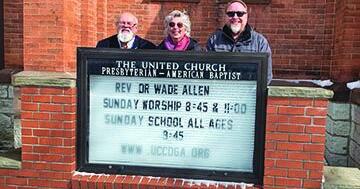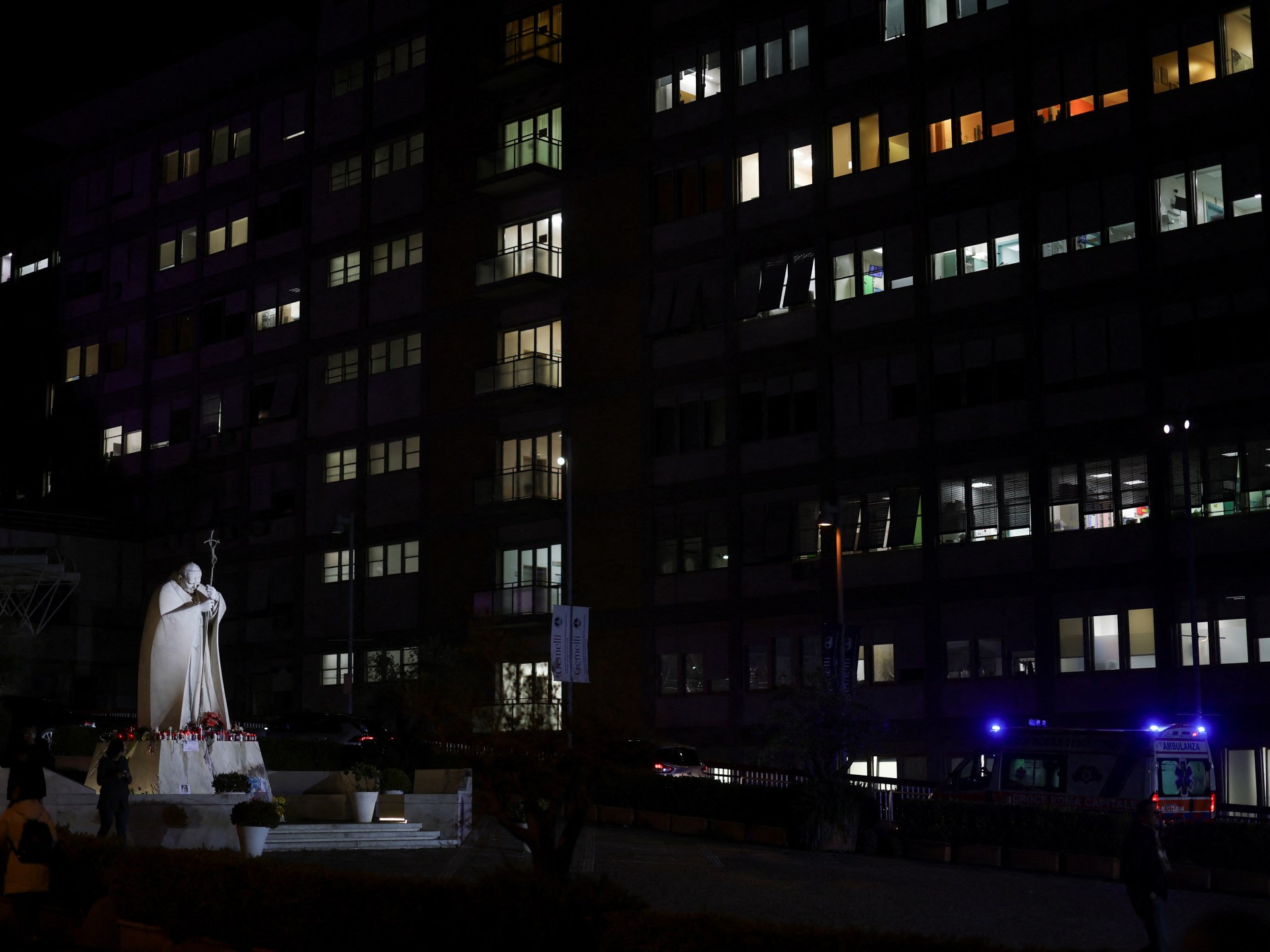Faith in Flux: The Shifting Landscape of Christian Belief in Modern Times
Religion
2025-03-26 13:53:50Content

The Shifting Landscape of Christian Affiliation in America
In a revealing study by the Pew Research Center, Christianity in the United States has experienced significant religious migration, with millions of Americans leaving the faith they once called their own. This comprehensive analysis unveils the complex dynamics of religious identity transformation in contemporary American society.
Who's Leaving Christianity?
The research highlights that Christianity has suffered substantial net losses across various demographic groups. Young adults, in particular, are at the forefront of this religious transition, with many moving away from traditional Christian denominations.
Where Are They Going?
Interestingly, those departing from Christianity aren't simply abandoning religious belief altogether. Many are finding new spiritual homes, with a notable trend towards:
- Becoming religiously unaffiliated (often termed "nones")
- Exploring alternative spiritual practices
- Adopting more individualistic spiritual perspectives
This shift represents a profound transformation in how Americans conceptualize faith, religious identity, and personal spiritual journeys.
Implications for Religious Landscape
The study underscores a significant cultural moment: Christianity's declining influence and the rise of more fluid, personalized approaches to spirituality. As traditional religious boundaries blur, Americans are increasingly crafting unique spiritual narratives that reflect their individual experiences and worldviews.
Global Faith Shift: The Dramatic Transformation of Religious Landscapes in the 21st Century
In an era of unprecedented global connectivity and cultural transformation, religious affiliations are experiencing profound metamorphoses that challenge traditional understanding of spiritual identity. The intricate dynamics of religious switching reveal complex narratives of personal belief, societal change, and the evolving relationship between individuals and their spiritual frameworks.Unraveling the Spiritual Exodus: A Groundbreaking Analysis of Religious Transformation
The Changing Contours of Christian Demographics
Christianity, historically a dominant global religious force, is witnessing unprecedented demographic shifts that challenge centuries-old patterns of religious adherence. Contemporary research illuminates a nuanced landscape where traditional religious boundaries are becoming increasingly fluid and permeable. Young generations are demonstrating remarkable spiritual mobility, navigating complex existential terrains with unprecedented intellectual and emotional sophistication. The contemporary religious ecosystem presents a multifaceted narrative of spiritual exploration, where individuals are no longer constrained by inherited religious traditions. Emerging generations exhibit a remarkable propensity for questioning established theological frameworks, seeking personalized spiritual experiences that resonate with their individual worldviews and lived experiences.Factors Driving Religious Disengagement
Multiple interconnected societal dynamics contribute to the significant religious transformation. Technological proliferation, enhanced global education, increased exposure to diverse philosophical perspectives, and growing scientific literacy are fundamentally reshaping individual spiritual journeys. The digital age has democratized access to information, enabling unprecedented critical examination of religious doctrines and institutional practices. Sociological research indicates that younger demographics are increasingly prioritizing personal authenticity over institutional conformity. The traditional religious paradigms that once provided comprehensive worldviews are now being critically evaluated against contemporary ethical, scientific, and philosophical standards. This critical engagement has precipitated a remarkable spiritual recalibration across multiple cultural contexts.Global Patterns of Religious Migration
The phenomenon of religious switching transcends geographical boundaries, manifesting unique characteristics across different cultural landscapes. While some regions experience dramatic declines in traditional religious participation, others witness complex reconfigurations of spiritual identities. The global religious map is no longer a static representation but a dynamic, continuously evolving ecosystem of belief systems. Comparative analyses reveal intricate patterns of religious migration, where individuals navigate complex spiritual landscapes with remarkable adaptability. The boundaries between religious traditions are becoming increasingly permeable, facilitating unprecedented levels of philosophical and spiritual cross-pollination.Psychological and Societal Implications
The widespread religious transformation carries profound psychological and societal implications. Individual spiritual journeys are increasingly characterized by personal agency, critical reflection, and a holistic approach to understanding existential questions. This shift challenges traditional institutional religious frameworks, compelling them to adapt or risk becoming increasingly marginalized. Psychological research suggests that religious switching is not merely a superficial phenomenon but represents a deep-seated quest for meaningful existential understanding. Individuals are actively constructing personalized spiritual narratives that integrate diverse philosophical, scientific, and cultural insights.Technological Impact on Religious Perception
Digital technologies have emerged as powerful catalysts in reshaping religious perceptions and experiences. Social media platforms, online communities, and global information networks provide unprecedented opportunities for spiritual exploration and interfaith dialogue. These technological infrastructures facilitate nuanced understanding of diverse religious traditions, challenging monolithic interpretations and promoting more inclusive spiritual perspectives. The intersection of technology and spirituality represents a fascinating frontier of human experience, where traditional religious boundaries are continuously negotiated and reimagined. Digital platforms enable individuals to engage with complex spiritual questions in more dynamic, interactive, and personalized manners.RELATED NEWS

Spiritual Frontiers: Trio Embarks on Transformative Mission to Mexico's Heartland

Papal Health Alert: Francis Battles Respiratory Struggle as Pneumonia Grips Vatican






